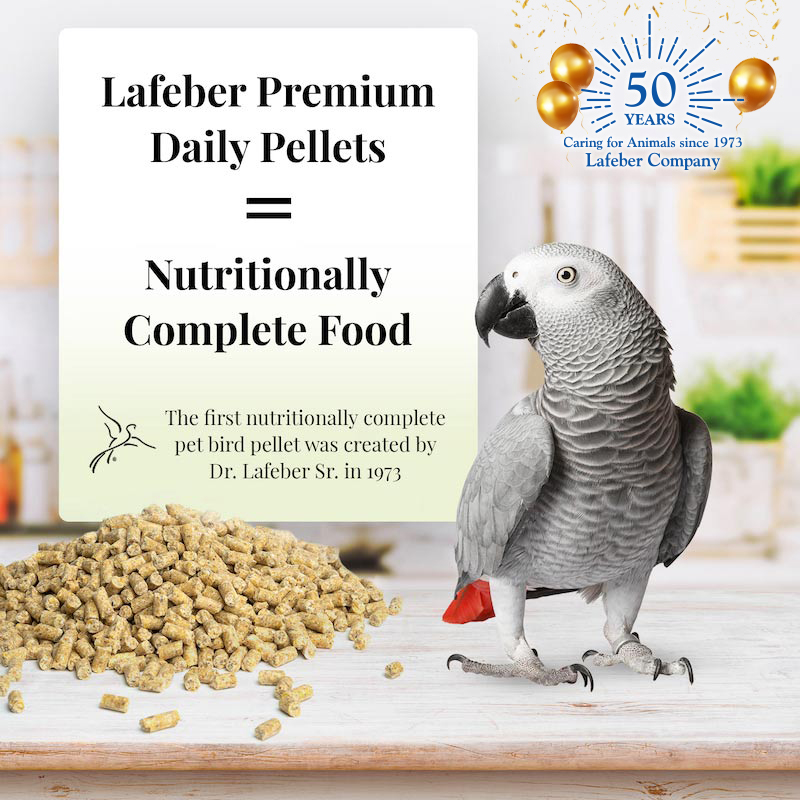
Balanced Parrot Pellets with Omega Oils: A Comprehensive Guide to Optimal Avian Nutrition
As dedicated parrot owners, we all strive to provide the best possible care for our feathered companions. A cornerstone of their well-being is proper nutrition. While seeds have traditionally been a staple in parrot diets, they fall short in providing a complete and balanced nutritional profile. Enter balanced parrot pellets, a scientifically formulated food option that has gained immense popularity among avian experts and parrot enthusiasts. When further enhanced with omega oils, these pellets offer a powerhouse of nutrients, supporting optimal health, vibrant plumage, and enhanced cognitive function in our beloved parrots.
The Nutritional Deficiencies of Seed-Based Diets
For years, parrots were primarily fed seed-based diets. However, seeds are inherently high in fat and deficient in essential vitamins, minerals, and amino acids. This imbalance can lead to a host of health problems, including:
- Obesity: The high fat content in seeds contributes to weight gain and obesity, predisposing parrots to various metabolic disorders.
- Vitamin A Deficiency: Seeds are notoriously low in vitamin A, which is crucial for immune function, vision, and respiratory health.
- Calcium Deficiency: Insufficient calcium intake can result in weak bones, poor egg production in females, and neurological issues.
- Amino Acid Imbalances: Seeds lack adequate amounts of certain essential amino acids, which are the building blocks of protein and vital for tissue repair and growth.
The Advantages of Balanced Parrot Pellets
Balanced parrot pellets are designed to address the nutritional shortcomings of seed-based diets. These pellets are formulated with a precise blend of ingredients, including:
- Grains: Provide carbohydrates for energy.
- Seeds: Included in controlled amounts for palatability and additional nutrients.
- Vegetables: Offer vitamins, minerals, and fiber.
- Fruits: Add natural sugars and antioxidants.
- Protein Sources: Supply essential amino acids for muscle development and tissue repair.
- Vitamins and Minerals: Supplement any deficiencies and ensure optimal bodily functions.
The Role of Omega Oils in Parrot Health
Omega-3 and omega-6 fatty acids are essential nutrients that parrots cannot produce on their own. These fats play a critical role in various physiological processes, including:
- Brain Function: Omega-3 fatty acids, particularly DHA, are vital for brain development and cognitive function. They can improve memory, learning ability, and overall mental acuity.
- Heart Health: Omega-3s have been shown to reduce triglycerides, lower blood pressure, and decrease the risk of heart disease in parrots.
- Joint Health: Omega-3s possess anti-inflammatory properties that can alleviate joint pain and stiffness, promoting mobility and comfort.
- Feather Health: Omega-3 and omega-6 fatty acids contribute to healthy skin and vibrant plumage. They help maintain feather flexibility, reduce feather breakage, and enhance feather shine.
- Immune Function: Omega-3s can modulate the immune system, helping parrots fight off infections and diseases.
- Eye Health: Omega-3s, especially DHA, are important for maintaining healthy vision and preventing age-related macular degeneration.
Choosing the Right Balanced Parrot Pellets with Omega Oils
With numerous parrot pellet brands on the market, selecting the right one can be overwhelming. Here are some key factors to consider:
- Ingredient Quality: Opt for pellets made with high-quality, natural ingredients. Avoid products with artificial colors, flavors, and preservatives.
- Omega Oil Source: Look for pellets that contain omega oils from reputable sources, such as flaxseed, chia seeds, or fish oil.
- Omega-3 to Omega-6 Ratio: The ideal ratio of omega-3 to omega-6 fatty acids in parrot diets is believed to be between 1:1 and 1:4. Check the product label to ensure a balanced ratio.
- Palatability: Some parrots are picky eaters. Choose pellets that are palatable to your bird to ensure they consume an adequate amount.
- Life Stage: Select pellets that are formulated for your parrot’s specific life stage, such as juvenile, adult, or senior.
- Veterinarian Recommendation: Consult with your avian veterinarian for personalized recommendations on the best parrot pellets for your bird.
Transitioning Your Parrot to Pellets
Converting a parrot from a seed-based diet to pellets can be a gradual process. Here are some tips to make the transition smoother:
- Mix Pellets with Seeds: Start by mixing a small amount of pellets with your parrot’s regular seed mix. Gradually increase the proportion of pellets over time.
- Offer Pellets First: Offer pellets in the morning before providing seeds. This encourages your parrot to try the pellets when they are most hungry.
- Make Pellets Appealing: Moisten the pellets with fruit juice or vegetable broth to enhance their flavor. You can also warm the pellets slightly to make them more enticing.
- Offer a Variety of Sizes and Shapes: Some parrots prefer certain pellet sizes and shapes over others. Experiment with different options to find what your bird likes best.
- Be Patient: It may take several weeks or even months for your parrot to fully accept pellets. Be patient and persistent, and don’t give up.
Supplementing Pellets with Fresh Foods
While balanced parrot pellets provide a comprehensive nutritional foundation, it’s still important to supplement your parrot’s diet with fresh foods. Offer a variety of:
- Vegetables: Leafy greens, carrots, broccoli, sweet potatoes, and bell peppers.
- Fruits: Apples, bananas, berries, melons, and mangoes.
- Nuts and Seeds: In moderation, as treats.
- Cooked Beans and Legumes: Excellent sources of protein and fiber.
Conclusion
Balanced parrot pellets with omega oils are a game-changer in avian nutrition. By providing a complete and balanced array of nutrients, these pellets promote optimal health, vibrant plumage, and enhanced cognitive function in our beloved parrots. When selecting pellets, prioritize high-quality ingredients, a balanced omega-3 to omega-6 ratio, and palatability. Remember to transition your parrot to pellets gradually and supplement their diet with fresh foods for a well-rounded and nutritious feeding regimen. By making informed choices about your parrot’s diet, you can ensure they live a long, healthy, and happy life.

